Insurance agents often juggle several clients daily, managing everything from customer inquiries and claims processing to policy renewals and updates. Handling this volume while balancing administrative tasks, compliance concerns, and follow-ups can overwhelm agents, leading to operational inefficiency and poor customer service.
Cloud-based contact center solutions can help. These platforms allow you to either enhance your in-house team’s capabilities or use business process outsourcing (BPO) to a qualified insurance contact center that can manage high volumes of both inbound and outbound calls.
What Is an Insurance Call Center and Why Is It Essential?
An insurance call center is a central facility that handles all customer interactions, whether by phone, email, chat, or social media. It’s a central point of contact for handling customer inquiries, claims processing, and insurance-related questions, providing policyholders with personalized service and support.
Call center services are essential in the insurance industry, helping insurers efficiently manage multiple interactions simultaneously. To maintain customer trust — the cornerstone of the industry — call center agents must provide timely and accurate information.
Many insurance providers outsource their services to third-party call centers. This frees them up to focus time and resources on key business functions like lead generation while still delivering excellent customer service. Insurance call center outsourcing also reduces costs by eliminating the need for in-house infrastructure and staff. Third-party providers have the expertise and advanced technology to efficiently handle the multitude of customer interactions that a typical agency would struggle to manage.
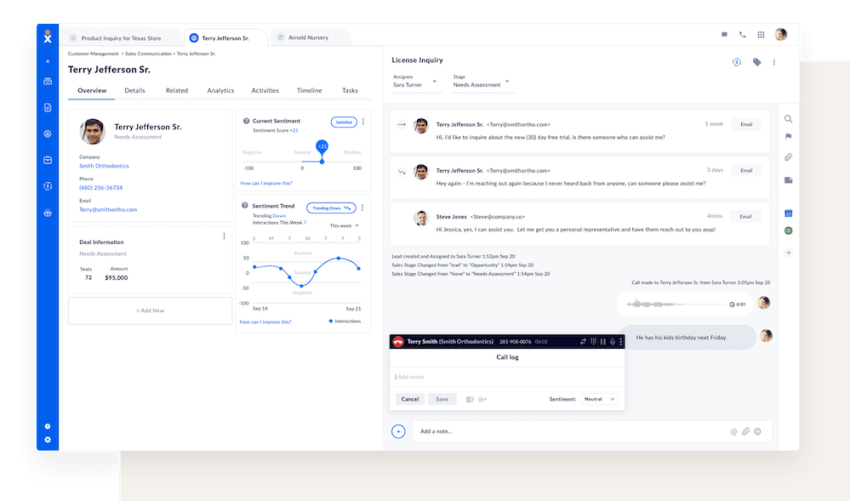
How Call Center Solutions Benefit Insurance Agencies
Modern contact center solutions facilitate improved communication across multiple channels, helping insurance companies enhance their marketing, customer support, and sales efforts. Here’s how these solutions benefit small and large insurance agencies alike.
Improved client experience
Through optimized communications, insurance agencies can increase customer engagement and satisfaction and create a unified customer experience with consistent brand interactions. Features like intelligent call routing and interactive voice response (IVR) streamline customer interactions and reduce response times and handling times by offering self-service options for simple inquiries and ensuring callers connect to the most qualified agent on the first try. This reduces customer wait times and frustration.
Advanced CRM integrations, built into most platforms, give agents a complete overview of each customer’s policies and history. This enables personalized support and recommendations that go beyond generic scripts, driving valuable customer conversations.
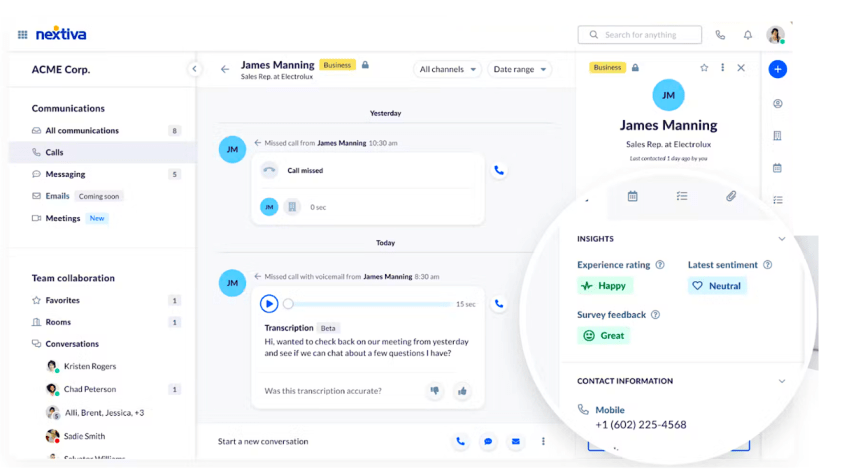
Increased agent productivity
Insurance contact center solutions allow reps to focus on high-value tasks like nurturing leads and resolving complex client needs, rather than being bogged down by routine queries. Automated workflows handle repetitive duties like data entry and standard policy updates, freeing up agents for more critical thinking and problem-solving, boosting efficiency and agent performance.
Managers are also empowered with tools like call recording for agent training and real-time monitoring for on-the-spot agent coaching and quality assurance. This is all supported by robust call center performance metrics and reporting, which provide the data needed to optimize staffing, identify training opportunities, and ensure the entire team operates at peak efficiency.
Cost-effectiveness
Cloud-based solutions are fully digital and help reduce operating costs by eliminating expensive on-premises PBX hardware. Advanced features improve first-call resolution rates, minimize time-consuming follow-up calls, and offer self-service IVR options that reduce agent workloads. Agencies looking to streamline their processes can realize even greater savings by outsourcing to a BPO provider, which eliminates the need for in-house infrastructure and staffing.
Data-driven decision making
Contact center software is a powerful source of business intelligence. The platform’s reporting and analytics capabilities allow managers to track customer interactions, identify call volume trends, and monitor satisfaction. With a deeper understanding of customer behavior and pain points, agency management can adjust product offerings, make staffing decisions for peak times, and discover new opportunities for process optimization.
To see how these systems work in action, check out this overview of cloud contact center software:
Unique Needs of an Insurance Contact Center
The insurance industry faces unique challenges that directly impact contact center operations. Understanding these specific requirements is key to providing effective service.
Health insurance and a higher standard of care
The stakes are even higher for health insurance call centers. These teams often handle sensitive, complex, and urgent inquiries. Customers are frequently in stressful situations, so empathy, accuracy, and efficiency are essential.
Data security and HIPAA compliance
Health insurance contact centers must adhere to strict industry regulations, particularly the Health Insurance Portability and Accountability Act (HIPAA), to ensure the confidentiality of protected health information (PHI) in the healthcare industry. Protecting this sensitive data with robust security measures like data encryption and secure communication channels is vital to maintaining customer trust and avoiding severe legal and financial consequences.
8 Key Features to Look for in Insurance Call Center Software
When choosing an insurance call center solution — whether for outsourcing or internal use — there are eight must-have features to look for.
1. Omnichannel communication
Look for contact center solutions, not just call center solutions. While call centers may only support voice calls, a contact center integrates multiple touchpoints — phone calls, email, SMS, and live chat — into a single dashboard. This creates an omnichannel customer experience, allowing you to connect with customers on their preferred channel.
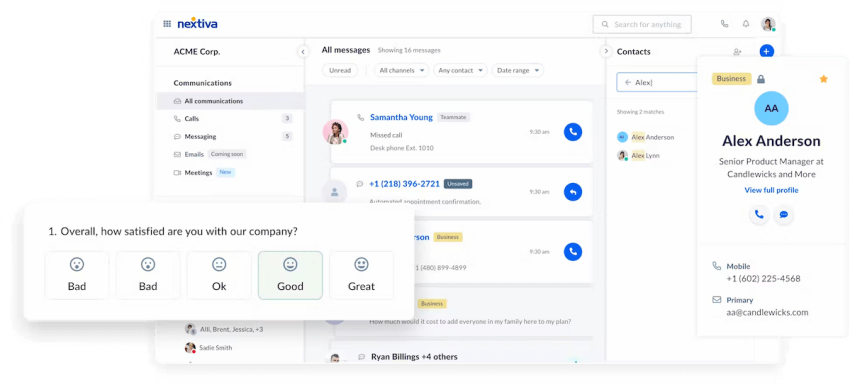
2. Intelligent call routing
Call routing feature directs callers to the appropriate agent based on predefined criteria like language preference, location, or inquiry type. It’s not just about who is available, but about connecting callers with agents specializing in sales, claims, or specific policy questions.
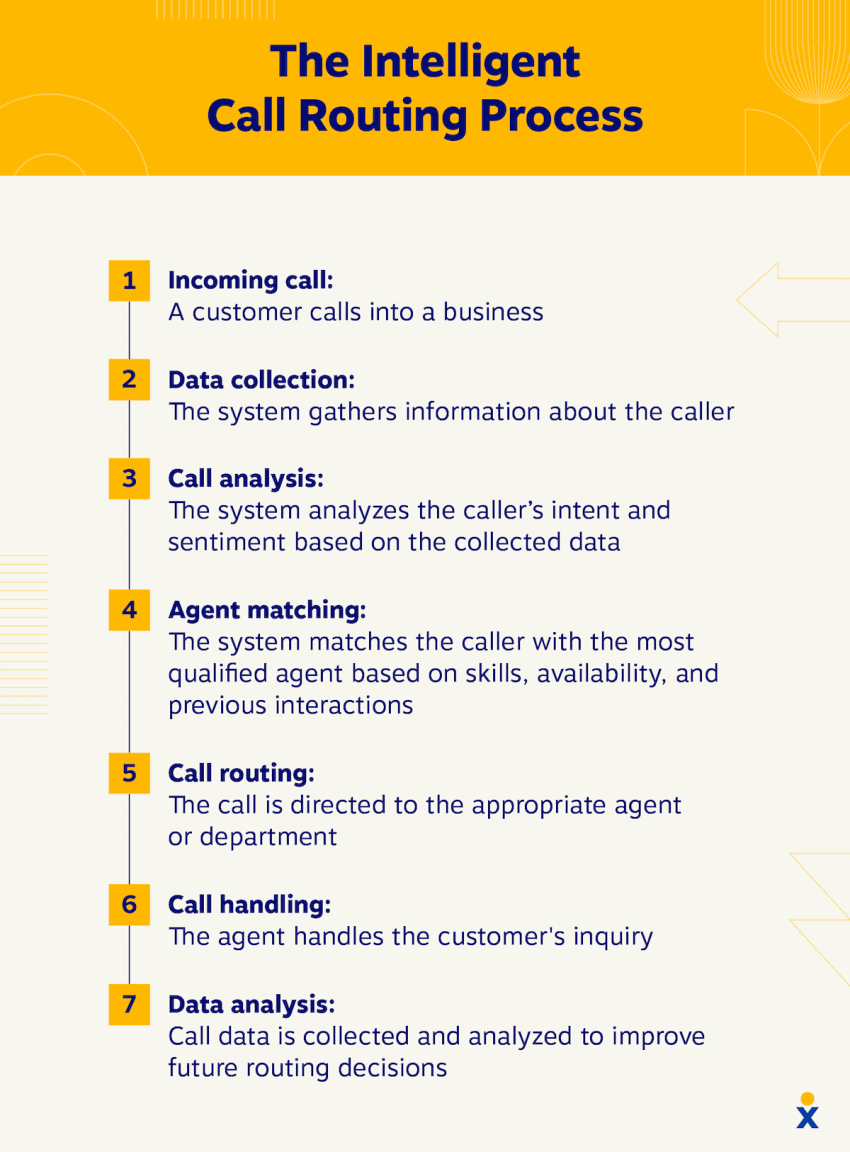
3. Interactive voice response (IVR)
IVR allows callers to use an automated system for simple tasks like checking a claim status, making a payment, or requesting a callback. IVR systems reduce agent workload and help them connect faster with customers who need direct assistance.
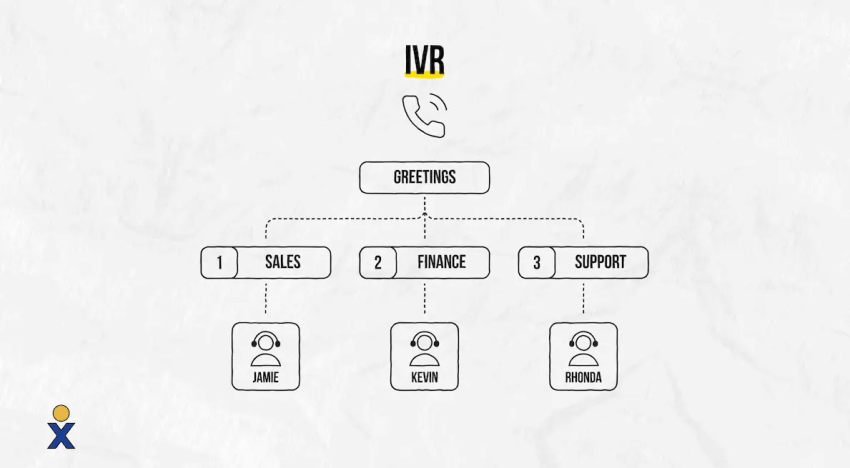
4. Call recording and monitoring
Record calls for regulatory compliance, training, and quality control. This feature provides additional protection in dispute resolutions and allows managers to review interactions. The software should allow for easy start, stop, and pause functionality for recordings.
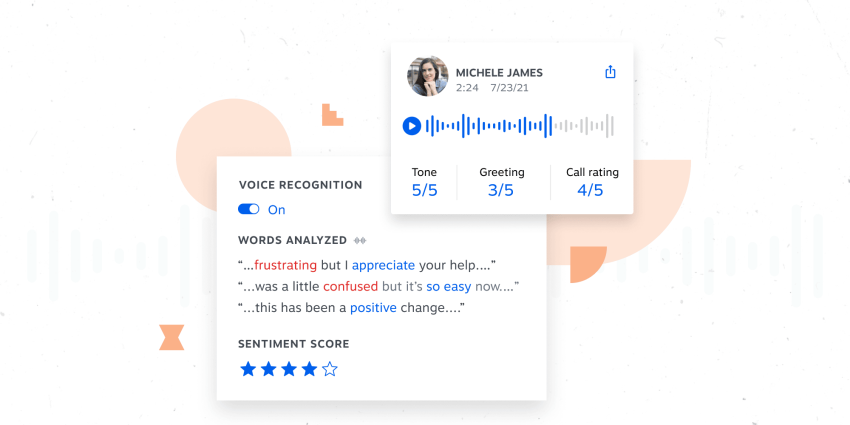
5. CRM integration
Seamless integration with your CRM and existing systems gives agents a full view of each customer’s policy, claim history, and support records. This personalization helps them resolve issues faster and identify opportunities for upselling or expanding coverage.
6. Automated follow-up and reminders
Lighten your agents’ workload with automated appointment scheduling, renewal reminders, and follow-up communications. This ensures insurance clients receive timely information and increases operational efficiency by streamlining repetitive tasks.
7. Mobile app compatibility
A fully functional mobile app allows field agents and remote workers to manage calls and access client information from anywhere. Agents should be able to make outbound calls, receive inbound calls, and access customer information as effectively as they can from their desktop.
8. Compliance management
Insurance agencies must often abide by data protection regulations like GDPR, PCI, and HIPAA. Your software should have advanced security features like secure call handling, top-of-the-line encryption, two-factor authentication, and access management. For HIPAA compliance, look for specific tools like the ability to pause recordings when taking sensitive information.
Examples of Insurance Contact Center Providers
Once you know what features to look for, you can start evaluating specific call center software providers. The market for contact center software is robust, but certain providers are particularly well-suited for the demands of the insurance industry. Here are a few examples to begin your research:
- Nextiva: Known for its all-in-one communications platform that combines a business phone system with advanced contact center capabilities. It’s a strong choice for agencies looking for reliability, deep analytics, and AI-powered tools like those found in its Power Suite CX plan.
- RingCentral: A major player in the UCaaS (Unified Communications as a Service) space, offering a comprehensive suite of tools for voice, video, and messaging, with robust contact center features available for larger teams.
- Talkdesk: A provider focused specifically on CCaaS (Contact Center as a Service), known for its AI-powered features for customer experience automation and workforce engagement.
- Five9: A long-standing leader in the cloud contact center market, offering powerful solutions for both inbound and outbound communication, along with workforce optimization and analytics tools.
- Aircall: Often favored by sales and support teams, Aircall focuses on a voice platform that is easy to use and integrates seamlessly with a wide range of CRMs and business tools.
Common Use Cases for Insurance Agents
If you’re unsure how contact center software can benefit your business, here are a few common use cases.
Lead management and qualification
Contact center solutions can support and automate lead management. IVR and intelligent call routing can qualify leads by gathering basic information before connecting them to an agent, ensuring reps focus on high-priority prospects. Outbound agencies use features like predictive auto-dialers to efficiently work through lead lists.

Claims handling
Claims filing can be time-consuming. An IVR system can help customers report incidents or check claim status, freeing up your staff for more complex inquiries. Call recording helps ensure all verbal agreements are accurately captured, reducing your agency’s liability risk.
Policy renewal reminders
Instead of handling renewals manually, you can automatically notify customers of upcoming expirations, reducing the likelihood of policy gaps. During these interactions, personalized offers can be presented to upsell or expand coverage based on customer history.
Dispute resolution
Recorded calls allow managers to review interactions and ensure customer disputes are handled properly, providing a clear record to avoid potential litigation. Real-time call center monitoring also allows supervisors to coach agents during a difficult call or intervene directly to resolve escalated issues quickly.
How to Get Started With an Insurance Call Center Service
Switching to insurance contact center software is easier than you think. Here’s a simple guide to get you started.
- Assess your insurance agency’s needs. Determine your key goals. Do you need to improve lead qualification, streamline insurance claims processing, or simply handle call volume more efficiently? Document your key pain points to create clear requirements.
- Evaluate your options (in-house or BPO). Decide whether to support your internal team with new software or outsource communications to an external BPO provider. Your budget, staffing levels, and control preferences will determine this decision.
- Plan for a smooth transition. Create a list of your customer contacts for easy import into the new system. Identify key agents who can support the software and train the rest of the team on new workflows.
- Schedule a demo. The best way to find out if a solution is right for you is to see it in action. Book a live demo with a contact center provider to ask questions about your agency’s workflows and ensure it meets the needs you identified in Step 1.
Take Care of Your Clients With Nextiva
Contact center solutions offer advanced capabilities that allow insurance agencies to leverage automated workflows to improve the customer experience, boost agent productivity, and increase call handling capacity.
Nextiva is an AI-powered contact center solution that supports your agents with IVR, intelligent call routing, lead management features, and omnichannel communication. Use Nextiva to address core business needs like lead generation, policy renewals, and outreach.
Nextiva worked with Hancock Insurance, for example, to improve their customer communication. With Nextiva, they were able to set up secure online document transmission and support widespread international calling.
“The entire team is happy with Nextiva. We receive great service and the call quality has improved significantly, plus we can call Canada cheaply! Our potential customers are searching online, and then they call in. If we miss a call, we miss a chance to earn someone’s business. With Nextiva, we’re all much more confident in the reliability of our phone service.”
~Cory Wormell, Insurance Agent
UCPM, a national environmental insurance wholesaler, needed a robust phone system to connect its team spread across the country. The company chose Nextiva for its high service uptime and easy-to-use software. Reliable internal and external communication has been essential for their distributed workforce.
Learn more about Nextiva’s insurance contact center solutions today. 👇
Attract and retain insurance clients.
Nextiva helps insurance companies increase renewals, build lasting relationships and leverage one platform for efficient, responsive conversations.
Insurance Call Center Software (FAQs)
Pricing for insurance call center services follows a per-user, per-month subscription model and can range from $50 to over $150 per user, depending on the features you need. The final cost is influenced by:
— The number of agents using the software.
— The feature set. For example, a provider like Nextiva tiers its plans. An entry-level plan might cover core calling and basic routing. A mid-tier plan (Engage) could add omnichannel features like web chat and SMS, while a top-tier plan (Power Suite CX) would include advanced AI, analytics, and automation in a single dashboard.
— Contract length (annual plans are usually more cost-effective than monthly).
The best way to get an accurate figure is to request a custom quote based on your agency’s specific requirements.
It’s a cloud-based system, meaning it runs over the internet, not on-premise hardware. Your agents log into a desktop or mobile app to handle calls, texts, and chats from anywhere. The software uses features like intelligent routing to direct clients to the right agent and integrates with your CRM system to provide a complete view of the policyholder’s history during every interaction.
While some generic tools offer free basic plans, professional software designed for the insurance industry — especially with HIPAA compliance — is typically not free due to the robust security and advanced features required. However, most top providers offer free trials or demos, allowing you to test the platform’s value before committing to a plan.
The “best” software depends entirely on your insurance agency’s specific needs. The ideal choice for you will offer a balance of the key features discussed in this article: omnichannel communication (including phone, email, and SMS), strong security and compliance (especially HIPAA compliance), seamless CRM integration, and tools such as call recording and analytics. Always look for a provider with a reputation for reliability and excellent customer support.
Yes. Contact center software is designed for flexibility. Agents can access the full suite of tools from anywhere with an internet connection, using a desktop app, a web browser, or a fully functional mobile app.


















 Customer Experience
Customer Experience 









